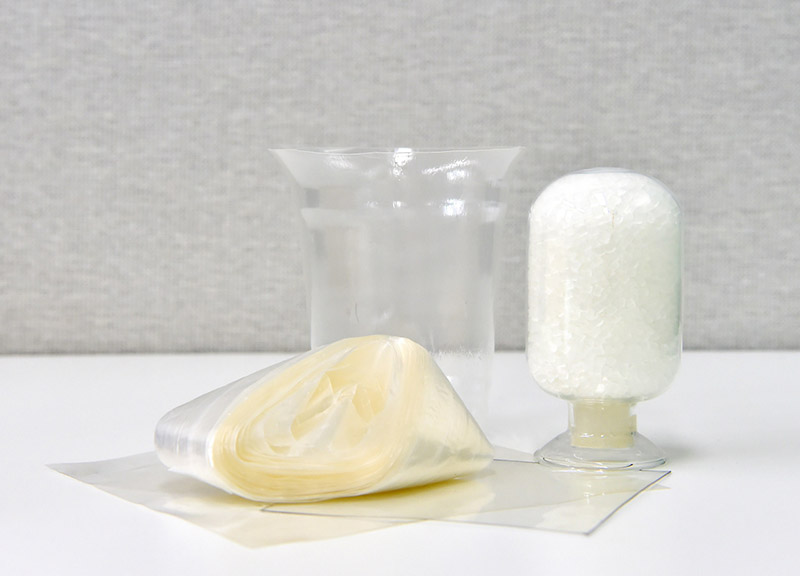By Kim Byung-wook
Published : Oct 19, 2020 – 16:55 Updated : Oct 19, 2020 – 22:13
LG Chem said Monday that it has developed a new material made of 100 percent biodegradable raw materials, the first in the world that is identical to synthetic plastic in its properties and functions.
According to the South Korean chemical-to-battery firm, the new material — made of glucose from corn and waste glycerol generated from biodiesel production — offers the same properties and transparency as synthetic resins such as polypropylene, one of the most widely produced commodity plastics.
“Conventional biodegradable materials had to be mixed with additional plastic materials or additives to strengthen their properties or elasticity, so their properties and prices differed case by case. However, LG Chem’s newly developed biodegradable material doesn’t require such additional process, meaning that different qualities and properties customers require can be met with the single material alone,” a company official said.
LG Chem’s newly developed biodegradable material and a prototype product (LG Chem)
Compared with existing biodegradable materials, the elasticity of LG Chem’s new material is as much as 20 times greater and it remains transparent after being processed. Until now, due to limitations in transparency, biodegradable materials have been used for opaque plastic packaging.
The global biodegradable materials market is expected to see annual growth of 15 percent, and should expand to 9.7 trillion won ($8.4 billion) in 2025 from 4.2 trillion won as of last year, according to the company.
LG Chem has 25 patents for biodegradable materials, and the German certification body “Din Certco” verified that the newly developed material decomposed more than 90 percent within 120 days.
“Amid growing interest on eco-friendly materials, it is meaningful that LG Chem has successfully developed a source material composed of 100 percent biodegradable raw materials with independent technology,” said Ro Kisu, chief technology officer for LG Chem.
LG Chem aims to mass-produce the material in 2025.
By Kim Byung-wook (kbw@heraldcorp.com)
Post time: Nov-02-2020











